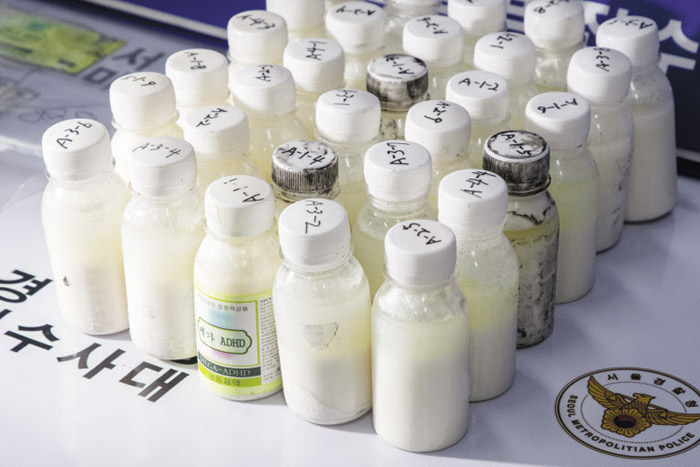Korean students targeted with drug-laced drinks
On April 3, four suspects in groups of two were spotted distributing suspicious drinks to students in Daechi-dong, near the Gangnam-gu Cheong station, from 4pm to 9pm.
While feigning a promotion event, the suspects approached high school students with drinks claiming that they would enhance memory and concentration. The drinks were labeled “Mega ADHD” with a sticker of a famous Korean pharmacy company.
While handing out the drinks, the suspects asked for the contact information of the students’ parents, saying that they would provide further information regarding the drinks.
However, the drinks were actually spiked with philopon and ecstasy substances. The suspects used these drinks as blackmail, demanding money from parents and threatening to report their children for drug possession.
“The Daechi-dong district is where many Korean students either live or stay around after school because of all the hagwons there,” Joshua Huang (11), a student who heard about news online, said. “I know that promotion events are pretty common as well, so students are likely to have thought little of it when offered the drinks. I saw what the drink looked like, and I think that the way it was packaged also makes it seem more legit, which is why students consumed it without much suspicion.”
Amongst the four suspects, authorities were able to arrest a woman in her late 40s outside her house by tracking her appearance and car license plate on surveillance cameras, and a man in his 40s turned himself in the next day. Two other accomplices are still on the run.
The woman reported to the police that she was unaware the drinks contained drugs, but merely applied for a part-time job online. She claimed to not know who is in control of the business or how it started.
Though the number of victims could rise, authorities are currently looking into six cases as of April 5. Students who consumed the drink say they are experiencing various symptoms such as nausea and dizziness.
“I heard about this news on Korean television,” Nancy Koo (12), a student living near Daechi-dong, said. “I believe what is most scary about this case is that it supports how prevalent drugs have become in Korea. Though there are extremely strict laws to ban them and drugs have been treated as taboos for years, even famous Korean actors and singers are getting caught for drug usage. I think this serves to show how drugs are far more accessible in Korea now, and new regulations must take place before more naive and vulnerable victims such as students continue to get subjected.”

